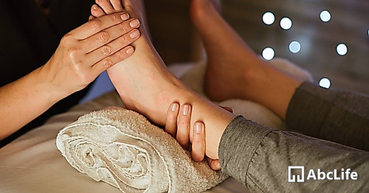Exercise is about more than just getting in shape or losing weight. It is a potent tool for reducing stress and promoting mental well-being. In our fast-paced and demanding world, stress has become an unavoidable part of daily life. The constant pressure to meet deadlines, balance work and family obligations, and navigate life's challenges can leave us feeling overwhelmed and mentally drained. However, incorporating exercise into our routine can do wonders for stress relief and mental health.
1. The Science Behind Exercise and Stress

Have you ever wondered why a good workout session makes you feel so good? It's not just in your head. Physical activity causes the release of endorphins, which are known as the brain's "feel-good" chemicals. These endorphins interact with brain receptors, reducing pain perception and eliciting positive feelings. Regular exercise has also been shown to reduce the production of stress hormones like cortisol while increasing the production of serotonin, which regulates mood.
Furthermore, exercise promotes better sleep patterns, which is another important aspect of stress management. Your body temperature rises during exercise and then drops, signaling to your body that it is time to sleep. This can help you fall asleep faster and sleep better, resulting in better overall well-being and lower stress levels.
Aim for at least 150 minutes of moderate-intensity exercise or 75 minutes of vigorous-intensity exercise per week to reap the most stress-relieving benefits. This includes brisk walking, jogging, cycling, swimming, and even dancing. The key is to find something you enjoy and incorporate it into your daily routine.
2. Exercise as a Natural Mood Booster

When stress has a negative impact on our mental health, exercise can be a game changer. Physical activity has been shown to have a significant impact on our emotions and mood. As previously stated, it stimulates the production of endorphins, which produce feelings of happiness and euphoria. Exercise can also help you focus on the present moment and cultivate a sense of mindfulness by distracting you from negative thoughts and worries.
Furthermore, physical activity often results in a sense of accomplishment. Setting goals, whether it's running a 5K or increasing your push-ups, can give you a sense of purpose and boost your self-confidence. This positive energy spreads to other areas of your life, allowing you to approach stressors with a more optimistic attitude.
When you're feeling overwhelmed or down, put on your sneakers and go for a walk, go to the gym, or sign up for a yoga class. You'll be surprised at how much exercise can improve your mood and give you the mental fortitude to face whatever challenges come your way.
3. Exercise and Stress Reduction: Finding Your Ideal Fit
While exercise in general has stress-relieving benefits, finding the right activity for your preferences and lifestyle can enhance its benefits. Running may be the ultimate stress reliever for some, while yoga provides peace and tranquility for others. Experiment with different types of exercise to find out what works best for you and makes you feel most at ease.
Aerobic exercise, which raises your heart rate and gets your blood flowing, is a popular stress-relieving activity. This includes activities such as running, swimming, and cycling. These exercises not only increase endorphin production but also allow you to clear your mind and get away from your daily worries.
Consider mind-body exercises like yoga, tai chi, or Pilates if you prefer a gentler approach. These activities emphasize breathing, stretching, and increasing body awareness, offering a comprehensive approach to stress relief. Physical movement combined with mental focus can help to calm the mind and restore inner balance.
4. The Role of Social Connections in Exercise
Exercise does not have to be a solitary activity; it can also be a means of connecting with others and strengthening social bonds. Participating in group sports, joining a fitness class, or even having a workout buddy can increase the stress-relieving benefits of exercise.
When you exercise with others, you not only benefit from their accountability and support, but you also reap the benefits of social interaction. Participating in conversations, sharing laughter, and celebrating accomplishments with others can improve your overall well-being and make exercise more enjoyable and fulfilling. It's a win-win situation because you get to relieve stress while also making new friends and cultivating a sense of community.
If you prefer to exercise alone, look into virtual communities or online forums devoted to your chosen activity. Connecting with others who share your interests can still provide a sense of belonging and support.
5. Incorporating Exercise into Your Daily Routine
Finding time for exercise can be difficult with hectic schedules and numerous commitments. Physical activity, on the other hand, can be easily incorporated into your daily routine with a little creativity and planning.
Begin by identifying times during your day that you can devote to exercise. This could be as simple as going for a brisk walk during your lunch break or cycling to work rather than driving. Break up sedentary periods with short bursts of activity like stretching or bodyweight exercises.
Multitasking is another effective strategy. For example, if you enjoy watching television, why not do some light exercises like jogging in place or squats while you watch? This allows you to make the most of your free time while also prioritizing your physical and mental health.
6. Maintaining Motivation and Overcoming Barriers
While starting an exercise routine can be exciting, staying motivated over time can be difficult. It is critical to recognize that there will be days when you are less motivated or face obstacles that make sticking to your exercise routine difficult. You can, however, overcome these obstacles and stay on track with the right strategies.
Setting realistic and attainable goals is one effective way to maintain motivation. Begin with small increments and gradually increase the intensity or duration of your workouts. To stay motivated and build momentum, celebrate your accomplishments, no matter how small.
Find ways to make exercise enjoyable as well. Try different activities or explore new workout locations to add variety to your routine. Consider purchasing workout clothing that makes you feel at ease and confident. Remember to reward yourself for your hard work and dedication.
If time constraints or other commitments prevent you from devoting blocks of time to exercise, keep in mind that even short bursts of activity can help. Aim for consistency rather than perfection, and keep in mind that every step toward a healthier, stress-free mind counts.
7. Seek Professional Advice and Pay Attention to Your Body
Before beginning any exercise program, consult with a healthcare professional or certified fitness instructor, especially if you have underlying health conditions. They can offer personalized advice and design an exercise plan to meet your specific needs and goals.
Listening to your body is also essential for ensuring a safe and enjoyable workout. Pushing through pain or ignoring signs of fatigue can be harmful. Pay attention to how your body feels during and after exercise, and make any necessary changes or seek professional advice.
Remember that exercise should be a stress-relieving ritual rather than a source of additional stress. Trust your instincts, be gentle with yourself, and make decisions that benefit your physical and mental health.
Exercise's ability to reduce stress and promote mental health cannot be overstated. It is a natural and accessible tool that can help you navigate daily challenges with greater resilience and peace of mind. Accept the transformative power of exercise and incorporate it into your daily routine. Your mind will thank you.
8. Additional Tips for Stress-Busting Exercise
While exercise is a powerful stress reliever in and of itself, there are a few additional tips and techniques that can increase its effectiveness and help you get the most out of your workouts.
To begin, think about incorporating mindfulness practices into your exercise routine. Bringing your attention to the present moment and fully engaging in the activity at hand is what mindfulness entails. Concentrate on the sensations in your body, the rhythm of your breath, and the movement as you exercise. Cultivating mindfulness while exercising not only improves the stress-relieving benefits, but also allows you to develop a deeper connection with your body and its capabilities.
Second, try to spend as much time as possible outside. Exercising outside in nature has been shown to improve mental health. Going for a run in the park, hiking in the mountains, or practicing yoga on the beach can all help to improve your mood, reduce stress, and promote a sense of calm and well-being.
Another effective strategy is to vary your workouts and push yourself. While sticking to a routine can provide structure and consistency, trying new activities or increasing the intensity of your workouts can provide a refreshing change and keep you from becoming bored. Consider taking a new fitness class, experimenting with new workout routines, or incorporating strength training into your routine. These variations not only keep exercise interesting, but also help you grow and improve over time.
9. Exercise and the Power of Habit
Establishing a regular exercise routine is critical to realizing its full potential as a stress-relieving ritual. Exercise can be incorporated into your daily routine in the same way that brushing your teeth or taking a shower has.
Begin by scheduling specific times for exercise that work best for you. Make it a non-negotiable appointment with yourself, whether it's in the morning, during your lunch break, or in the evening. Exercise should be treated as a priority rather than an afterthought, and it should be scheduled on your calendar.
Find activities that appeal to your interests and personality to make exercise more enjoyable and sustainable. If you dislike running on a treadmill, consider swimming, dancing, or martial arts as alternatives. You are more likely to stick with activities that you genuinely enjoy if you choose them.
Finally, hold yourself accountable by keeping track of your progress and celebrating small victories along the way. Regular feedback and positive reinforcement can keep you motivated and committed to your exercise routine, whether you keep a workout journal, use fitness apps, or share your accomplishments with a supportive community.
10. Combining Exercise and Other Stress-Reduction Techniques
While exercise is a powerful stress-relieving tool on its own, its benefits can be amplified when combined with other stress-management techniques.
Combining exercise with relaxation practices such as deep breathing exercises, meditation, or yoga is an effective strategy. After an energizing workout, spend a few minutes winding down and engaging in relaxing activities. This combination of physical activity and relaxation can create a harmonious balance, leaving you feeling refreshed and centered.
Another technique worth investigating is the use of music while exercising. Listening to uplifting and energizing music can improve your mood, divert your attention away from negative thoughts, and increase your motivation to keep moving. To make your workouts more enjoyable, make playlists of your favorite songs for different types of workouts. Additionally, consider incorporating stress-relieving techniques such as journaling, aromatherapy, or spending time with loved ones into your post-workout routine. These activities can boost the relaxing and rejuvenating effects of exercise, allowing you to completely unwind and recharge.










